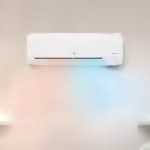Indoor air quality plays a crucial role in our health and well-being. With pollutants, allergens, and harmful particles floating around in our homes, maintaining clean air can often be challenging. This is where air p. come into play. Designed to remove contaminants from the air, air purifiers help create a cleaner, healthier environment. In this article, we’ll explore the benefits of air purifiers, how they work, and why they are a valuable addition to any home.
Click here to get the best deal on Air Purifiers
1. How Air Purifiers Work
Air purifiers use filters, fans, or electrostatic technology to clean the air in a room by trapping pollutants, allergens, and harmful particles. There are several types of air purifiers, but the most common include:
- HEPA Filters: High-Efficiency Particulate Air (HEPA) filters capture 99.97% of particles as small as 0.3 microns, such as dust, pollen, pet dander, and some bacteria and viruses.
- Activated Carbon Filters: These filters are effective at absorbing odors, smoke, and harmful gases from the air, making them ideal for households with pets, smokers, or strong chemical odors.
- Ionizers: Ionizers release negative ions into the air, which bind to airborne particles, causing them to settle out of the air onto surfaces that can be cleaned.
- UV Light Technology: Some air purifiers use ultraviolet (UV) light to kill bacteria, viruses, and mold spores as air passes through the unit.
By using one or more of these technologies, air purifiers help reduce the number of pollutants and allergens in your home, leading to improved air quality and health benefits.
2. Health Benefits of Air Purifiers
Poor indoor air quality can lead to a range of health issues, from allergies and asthma to respiratory infections. Using an air purifier can have a significant positive impact on your health, especially if you or someone in your home suffers from respiratory conditions or allergies.
- Allergy Relief: Air purifiers with HEPA filters can effectively capture airborne allergens such as pollen, pet dander, dust mites, and mold spores. This reduces the likelihood of allergic reactions and helps to alleviate symptoms like sneezing, itchy eyes, and congestion.
- Asthma Management: Air purifiers remove common asthma triggers like dust, smoke, and pet hair, helping individuals manage their condition more effectively. Cleaner air can reduce the frequency and severity of asthma attacks.
- Reduction of Airborne Diseases: Airborne viruses and bacteria can circulate in the air, especially in enclosed spaces. Air purifiers with UV-C technology or HEPA filters can capture and neutralize many of these harmful particles, reducing the risk of illnesses spreading in the home.
- Improved Sleep: Clean air contributes to better sleep by reducing allergens and irritants that can disrupt your breathing at night. Air purifiers can also reduce noise pollution by eliminating unpleasant odors or smoke, creating a more comfortable sleeping environment.
3. Odor and Smoke Elimination
One of the major benefits of air purifiers, especially those with activated carbon filters, is their ability to remove odors and smoke from the air. Whether it’s from cooking, pets, or smoking, unpleasant smells can linger and impact the freshness of your home. Air purifiers absorb these particles, leaving your home smelling clean and fresh.
Click here to get the best deal on Air Purifiers
- Pet Odors: Pets bring joy, but they can also bring odors into the home. Air purifiers can reduce the smell of pet dander, urine, and general pet odors, ensuring your space remains odor-free.
- Cooking Smells: Frying, grilling, or cooking with strong spices can leave lingering smells. An air purifier can help neutralize these odors quickly.
- Tobacco Smoke: Air purifiers with activated carbon filters are particularly effective at removing tobacco smoke from the air, which contains harmful chemicals and toxins.
4. Protection Against Harmful Chemicals
Many household cleaning products, paints, and building materials release volatile organic compounds (VOCs) and other harmful chemicals into the air. Long-term exposure to these chemicals can cause health problems, including headaches, dizziness, and respiratory issues. Air purifiers equipped with activated carbon filters can trap and neutralize these chemicals, helping to protect your home from the harmful effects of VOCs.
5. Cleaner Air for Urban Environments
For people living in urban areas, air purifiers offer significant benefits in combating pollution. Cities often have higher levels of air pollution due to traffic, construction, and industrial emissions. Air purifiers help filter out fine particulate matter (PM2.5), which is commonly found in polluted urban air and can contribute to respiratory diseases and other health issues.
6. Choosing the Right Air Purifier for Your Home
When selecting an air purifier, consider factors like room size, type of pollutants, and specific health needs. Here are some tips to help you choose the right model:
- Room Size: Ensure the air purifier is appropriate for the size of the room. Many models specify the maximum square footage they can effectively clean.
- Filter Type: If allergies or asthma are a concern, choose an air purifier with a HEPA filter. For odors and chemical pollutants, opt for one with an activated carbon filter.
- Noise Levels: Some air purifiers can be noisy, especially on higher settings. Look for models with quiet operation modes, particularly if you plan to use them in bedrooms or other quiet spaces.
- Maintenance: Air purifiers require regular filter changes to remain effective. Be sure to check the cost and availability of replacement filters, as well as how frequently they need to be changed.
7. Maintaining Your Air Purifier
To keep your air purifier running efficiently, regular maintenance is essential. HEPA and activated carbon filters need to be replaced according to the manufacturer’s recommendations—typically every 6 to 12 months, depending on usage. Some air purifiers have indicator lights that alert you when it’s time for a filter change. Regularly cleaning pre-filters and vacuuming the unit can also prolong its lifespan and effectiveness.
Conclusion
Air purifiers are an excellent investment in your home’s air quality and your health. By removing harmful particles, allergens, and odors, they create a cleaner, healthier living environment. Whether you’re looking to relieve allergy symptoms, reduce asthma triggers, or protect your home from pollutants, an air purifier is a valuable tool that can make a significant difference in the air you breathe.
With a variety of models and technologies available, there’s an air purifier suited for every home and lifestyle. Take control of your indoor air quality and start breathing easier today.



